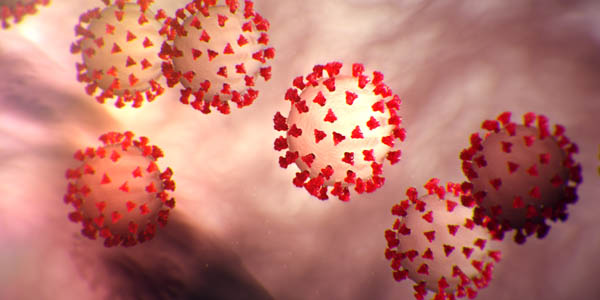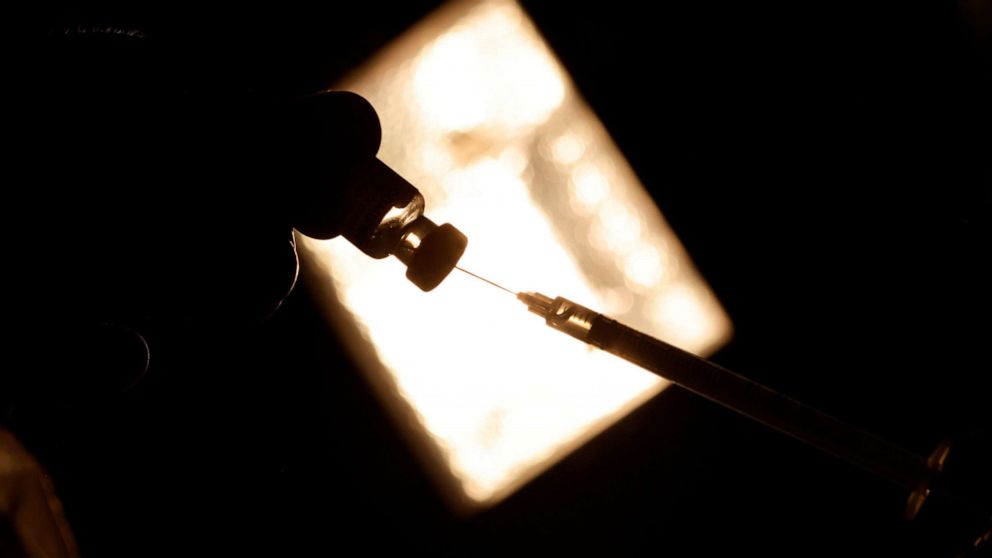It's worth remembering there is a subset of people who simply cannot be vaccinated, because their conditions put them at extreme risk. That being said, I definitely would not see the need for a nationwide mask mandate within a month of vaccine supply exceeding demand. I just don't see that happening in America until, I don't know, July? August?Why? What does that accomplish? As a fully vaccinated person, you do not transmit the virus. There is no benefit to you continuing to engage in those mitigation measures.
If vaccinated people are not only protected from Covid but do not transmit it, then there is no problem with mixing vaccinated and unvaccinated people. Unvaccinated people should, of course, be practicing mitigation measures. But there is no reason for a vaccinated person to do so. Rachel Walensky, the director of the CDC, herself said "Our data from the CDC today suggests that vaccinated people do not carry the virus."
Here are some links:


Real world study shows mRNA vaccines protect against symptomatic and asymptomatic infection: CDC
The Moderna and Pfizer vaccines have been shown to prevent both symptomatic and asymptomatic COVID-19, according to a new study.abcnews.go.com
:max_bytes(150000):strip_icc()/GettyImages-1281635877-e8ab9f01275b4ca6be4922851a2d5842.jpg)
Pfizer Vaccine Highly Effective at Preventing COVID-19, Study Shows
Data suggest that the Pfizer-BioNTech vaccine is effective at preventing asymptomatic and symptomatic COVID-19 in people who are vaccinated against the virus.www.verywellhealth.com

Covid-19 vaccines may prevent infection and not just symptoms, study suggests
Vaccine trials and distribution have also shed light on inequities in the medical field.www.kezi.com
-
Welcome to the WDWMAGIC.COM Forums!
Please take a look around, and feel free to sign up and join the community.
You are using an out of date browser. It may not display this or other websites correctly.
You should upgrade or use an alternative browser.
You should upgrade or use an alternative browser.
Coronavirus and Walt Disney World general discussion
- Thread starter Parker in NYC
- Start date
-
- Tags
- coronavirus covid covid-19
- Status
- Not open for further replies.
oceanbreeze77
Well-Known Member
Not necessarily....I think its best if the government mandate that a company can do what they want regarding vaccines. Companies then can have the choice to require it and people have the choice to patronize the company.In this kind of situations its either ALL or NONE. so its better if its a government mandate.
aliceismad
Well-Known Member
The counter of course would be that it puts the employees at a disadvantage - both that they have to enforce the company's decisions and also that they may not be able to quit should their choice differ from that of their employer.Not necessarily....I think its best if the government mandate that a company can do what they want regarding vaccines. Companies then can have the choice to require it and people have the choice to patronize the company.
Incomudro
Well-Known Member
By not requiring them for people under a certain age.If vaccines are not currently available to most kids, and particularly kids (under 16, even more under 12), how is WDW, which seems aimed at kids, supposed to respond? Especially if studies and vaccines will last likely until December this year.
Heppenheimer
Well-Known Member
No, the COVID vaccines are the first mRNA vaccines to be approved and commercially released but the technology has been under study and validated as safe for various diseases like influenza, cytomegalovirus, rabies, ebola and zika for over a decade. Pfizer, BIONTECH and Moderna already had ample internal safety data for the technique when they started their COVID-19 research.Except the mRNA vaccine(s) are the first of it's(their) kind. So to assume we know long term side effects (if any) is presumptuous. First of it's kind can lead to first of it's kind long term problems.
With that knowledge, it shouldn't be shocking that some people are concerned about long term effects of the vaccine.
lazyboy97o
Well-Known Member
By what mechanism could the mRNA cause a long term effect? You’re the one claiming the night still exist after years, so clearly you must the mechanism by which a problem could occur.Except the mRNA vaccine(s) are the first of it's(their) kind. So to assume we know long term side effects (if any) is presumptuous. First of it's kind can lead to first of it's kind long term problems.
With that knowledge, it shouldn't be shocking that some people are concerned about long term effects of the vaccine.
Dan Deesnee
Well-Known Member
By what mechanism could the mRNA cause a long term effect? You’re the one claiming the night still exist after years, so clearly you must the mechanism by which a problem could occur.
One of many articles / discussions I was able to find citing generally this same concern - https://www.jpost.com/health-science/could-an-mrna-vaccine-be-dangerous-in-the-long-term-649253
But he acknowledged that there are unique and unknown risks to messenger RNA vaccines, including local and systemic inflammatory responses that could lead to autoimmune conditions.
JoeCamel
Well-Known Member
I wonder if that article was written today instead of last November if it would be published at all? 6 months of data is in the can.One of many articles / discussions I was able to find citing generally this same concern - https://www.jpost.com/health-science/could-an-mrna-vaccine-be-dangerous-in-the-long-term-649253
The entire article except for one guy guessing is about how there can be no long term effects from mRNA vaccines. The mRNA material is fragile and will be gone in an instant. All it does is deliver the plans for the spike protein to the factory in the cell then poof it is broken down.
"As such, she said the worry should not be that the mRNA won’t get into the cells and instead will stay outside, floating in the body and causing some kind of reaction. Rather the concern should be that if it doesn’t enter the cells, it will disintegrate and therefore be ineffective.
She said that while Moderna and Pfizer are based on new vaccine technologies, they are asking our bodies to do something they do every day: protein synthesis, the process where cells make proteins."
Last edited:
lazyboy97o
Well-Known Member
That isn’t about something popping up months to years later.One of many articles / discussions I was able to find citing generally this same concern - https://www.jpost.com/health-science/could-an-mrna-vaccine-be-dangerous-in-the-long-term-649253
Tom P.
Well-Known Member
It's worth remembering there is a subset of people who simply cannot be vaccinated, because their conditions put them at extreme risk. That being said, I definitely would not see the need for a nationwide mask mandate within a month of vaccine supply exceeding demand. I just don't see that happening in America until, I don't know, July? August?
Agreed. I guess I should go back and clarify my point once again. I understand why businesses can't, right now, say "if you're vaccinated, you can skip the mask," because logistically that's impossible to enforce. But I don't think people who are vaccinated need fear spreading the virus anymore based on available data and I think social interactions without masks are fine once you are vaccinated. And I firmly believe that once vaccine supply is such that anyone who wants it can get one, restrictions should generally go away 1-2 months later.
JoeCamel
Well-Known Member
I no longer fear spreading or catching the virus (again) but I can wear a mask for a few months longer. Not really a burden to do so for meAgreed. I guess I should go back and clarify my point once again. I understand why businesses can't, right now, say "if you're vaccinated, you can skip the mask," because logistically that's impossible to enforce. But I don't think people who are vaccinated need fear spreading the virus anymore based on available data and I think social interactions without masks are fine once you are vaccinated. And I firmly believe that once vaccine supply is such that anyone who wants it can get one, restrictions should generally go away 1-2 months later.
Dan Deesnee
Well-Known Member
I wonder if that article was written today instead of last November if it would be published at all? 6 months of data is in the can.
The entire article except for one guy guessing is about how there can be no long term effects from mRNA vaccines
"As such, she said the worry should not be that the mRNA won’t get into the cells and instead will stay outside, floating in the body and causing some kind of reaction. Rather the concern should be that if it doesn’t enter the cells, it will disintegrate and therefore be ineffective.
She said that while Moderna and Pfizer are based on new vaccine technologies, they are asking our bodies to do something they do every day: protein synthesis, the process where cells make proteins."
Also interestingly, she says at the end of the article that she won't be taking the vaccine.
But when asked if she would take the vaccine right away, she responded: “I won’t be taking it immediately – probably not for at least the coming year,” she told the Post. “We have to wait and see whether it really works.”
I'll leave this thread with my final thought. The people who are so concerned about keeping everyone safe never respond to posts about other ways to keep people safe that have nothing to do with covid (speed limit reduction, etc.). My only conclusion is that they only really care about public safety when it comes to covid, and in no other real way. To me that's pretty odd.
I may get the vaccine once eligible, I may not. Choice is important to me. I don't like what "vaccine proof" requirements could turn into over time if taken to extremes (which they might).
Last edited:
Thanks for the links. Here's the actual transcript link too (I didn't want to watch the video):Why? What does that accomplish? As a fully vaccinated person, you do not transmit the virus. There is no benefit to you continuing to engage in those mitigation measures.
If vaccinated people are not only protected from Covid but do not transmit it, then there is no problem with mixing vaccinated and unvaccinated people. Unvaccinated people should, of course, be practicing mitigation measures. But there is no reason for a vaccinated person to do so. Rachel Walensky, the director of the CDC, herself said "Our data from the CDC today suggests that vaccinated people do not carry the virus."

Transcript: The Rachel Maddow Show, 3/29/21
Guests: Rochelle Walensky, Brandt Williams
We`re vaccinating so very fast, our data from the CDC today suggests, you know, that vaccinated people do not carry the virus, don`t get sick, and that it`s not just in the clinical trials but it`s also in real world data.
That's the whole line. It's in the middle of a discussion about optimism, vaccine distribution, and hope. Later in the same interview, there's "So we`re just asking people to wear masks for just a bit longer.". Either we give them both the same weight, or we don't. Or, really, we take this as an interview and go back to those other study links and see what they say.
Those actual studies aren't as absolute in nature. They use words more like "reduce", and yes with very larger percentages. But, a percentage with a huge population number is still leaves a large impact. They also talk about "real world" vs lab studies. A real world that included all the of the study participants continuing use of mitigation measures and being exposed to the current variants in the areas they're in, along with current levels of community spread where they were.
I do not doubt that with the current variants in circulation that the vaccines are highly effective at preventing infection and spread. Probably not to the same degree with every variant, but still highly effective with all of them.
But, that's not the same thing as treating the vaccination as a super protection and counting on only it to protect someone in an area of high spread. That's just creating unnecessary virus vaccine exposures. If the vaccine is 90% effective at preventing even asymptomatic infection and we increase the exposures by 10 or 100 or more by not using any other mitigations in an area with high spread, we're simply concentrating the chance that an infection get's through. We're effectively looking for a variant the vaccine is less effective against by giving lots of mutations a chance to infect a vaccinated person.
This isn't wanting mitigations to last forever. I certainly don't and am ready for them to be gone. It's understanding that mitigations have never been directly tied to an individual's vaccine. They're tied to the spread in the community where the individual is. Hence, in an area that still has large spread, the mitigations are still needed for everyone.
The more people in an area that are vaccinated, the more the spread will be reduced. The less chance of any virus vaccine exposures, and any that may still occur the vaccine is extremely likely to prevent infection and passing it on.
Spread is a community problem and needs a community response. An individual vaccination is contributing to the community response not solving the problem for one person absolutely.
JoeCamel
Well-Known Member
She is concerned about the efficacy not long term effects as it says in the article. I think 6 months later the efficacy has been established beyond doubtAlso interestingly, she says at the end of the article that she won't be taking the vaccine.
Heppenheimer
Well-Known Member
Then if your biggest concern is the remote possibility of autoimmune diseases, see my original response. That happens as soon as the self-reacting B and T cells mature, which is days to weeks later, not months to years. And we simply haven't observed a spike in autoimmune conditions with the current COVID vaccines, even after hundreds of millions of recipients have passed through that time window.One of many articles / discussions I was able to find citing generally this same concern - https://www.jpost.com/health-science/could-an-mrna-vaccine-be-dangerous-in-the-long-term-649253
DisneyDebRob
Well-Known Member
I believe that has and was always the plan. Get as many vaccinated as possible.. have it open to everyone.. get to that herd immunity number.. then slowly move the restrictions away. Problem is, they are being removed now.. it’s a free for all in a lot of places so all the careful planning and assumptions on what we need are going into the trash. I can’t understand how after the year everyone has been through that a few more months couldn’t have been done. I take that back, I can understand it. Patience has never been a virtue for many no matter what the damage is around us.Agreed. I guess I should go back and clarify my point once again. I understand why businesses can't, right now, say "if you're vaccinated, you can skip the mask," because logistically that's impossible to enforce. But I don't think people who are vaccinated need fear spreading the virus anymore based on available data and I think social interactions without masks are fine once you are vaccinated. And I firmly believe that once vaccine supply is such that anyone who wants it can get one, restrictions should generally go away 1-2 months later.
correcaminos
Well-Known Member
They do work though. Studies have shown this. Real life has shown this.Also interestingly, she says at the end of the article that she won't be taking the vaccine.
I'm being honest and asking without malice. What are you really afraid of? That was a simple opinion piece. Not data driven. People correct you and you seem to not want to let go and listen. So what's at the root of this for you? Circular arguments help no one.
DisneyDebRob
Well-Known Member
Just jumped back in here and I see we are talking about speed limit reductions and obesity. I’m guessing the flu vs. Covid is next again. Feels like may of 2020 again.
Sirwalterraleigh
Premium Member
Florida has been audited twice, by both the Trump administration and the Biden administration.
...and yet...something isn’t at all trustworthy about that face
- Status
- Not open for further replies.
Register on WDWMAGIC. This sidebar will go away, and you'll see fewer ads.
